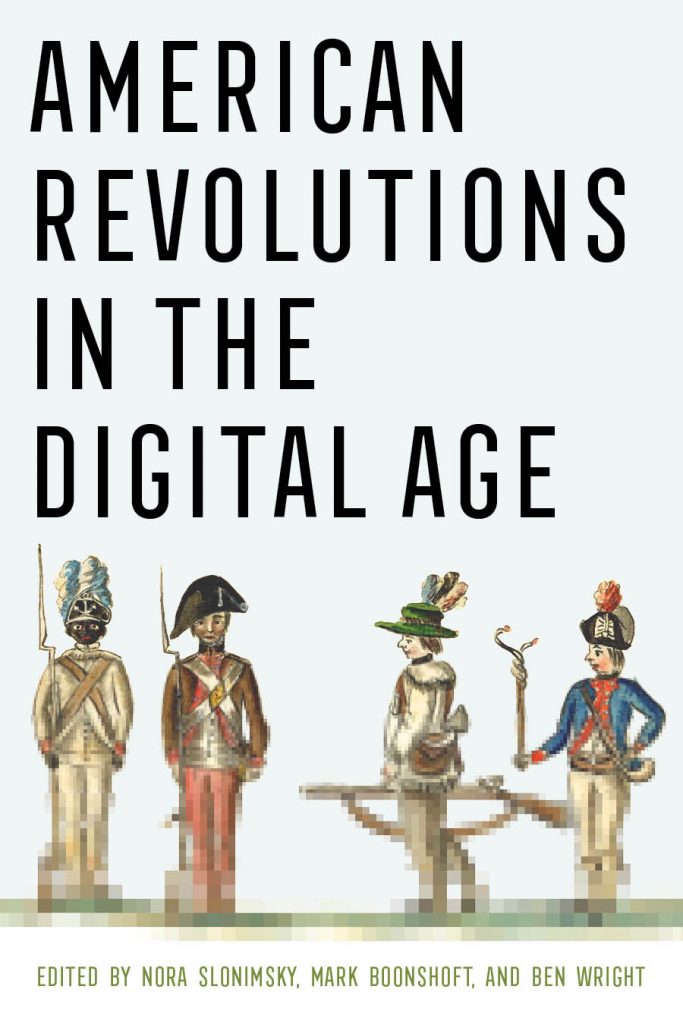Taking Stock and Setting Agendas:
A Workshop on Data, Digital Humanities,
and Early American Studies
Co-sponsored by the Institute for Thomas Paine Studies,
the McNeil Center for Early American Studies, and Early American Studies
September 19th – September 20th, 2025
Iona University, New Rochelle, New York, and Virtually
CALL FOR PAPERS
Over thirty years of digitally informed scholarship have proven that the digital humanities have much to offer the field of early American studies. The Institute for Thomas Paine Studies at Iona University, the McNeil Center for Early American Studies at the University of Pennsylvania, the Open U.S. History Lab at the University of Texas at Dallas, and the journal, Early American Studies, invite proposals for a workshop exploring the intersection of the digital humanities (DH) and early American studies. The hybrid workshop will be held in person at the campus of Iona University in New Rochelle, New York, and virtually through Zoom from Friday, September 19th, 2025, to Saturday, September 20th, 2025.
Participants in the workshop will precirculate papers of approximately 5,000 words and be expected to read and comment on the work of three other participants. All papers will be considered for publication in a special issue of Early American Studies that will attempt to both historicize digital scholarship in early American studies and consider where the field should go from here. We welcome scholars from a host of disciplines including, but not limited to: literature and literary studies, history, computer science, anthropology, religious studies, art history, library and information science, area studies, communication, Native American and Indigenous studies, geography, media studies, and all others who explore how the digital humanities offer new insights to the study of early America.
Proposals should fall into one of two categories: 1) “taking stock,” or reflections, broadly defined, on different aspects of digitally informed scholarship in the field of early American studies, and 2) “setting agendas” or considerations of where to go next. Accepted participants in both categories will be expected to submit papers of approximately 5,000 words by August 1, 2025.
Authors who contribute to the “Taking Stock” section will write surveys of how scholars have used a given digital method or tool over the last several decades. Examples of these methods or tools may include digital mapping, text mining, data visualization, network analysis, augmented/virtual reality, digital curation, podcasting, transcription, artificial intelligence, and more. We envision these pieces as examinations of the use of these methods across the field of early American studies, not as individual project profiles.
Authors who write for “Setting Agendas” will write argument-driven, “thought” essays which use the digital humanities to offer a scholarly intervention in the field of early American Studies or pieces that demonstrate how deeper insights into early America change our understanding of the digital world. We envision these papers as more future-oriented works.
To submit a proposal, please send a single document including a brief biographical statement and abstract of no more than 300 words in one document to bgw@utdallas.edu by June 1, 2025. We will notify presenters of acceptance by June 15th, 2025. The program committee includes the editors of Early American Studies, Rosalind J. Beiler, University of Central Florida, and Judith Ridner, Mississippi State University; along with Emma Hart and Peter Olsen-Harbich of the McNeil Center and the University of Pennsylvania; Mark Boonshoft, Virginia Military Institute; Nora Slonimsky, Iona University and the Institute for Thomas Paine Studies; and Ben Wright, the University of Texas at Dallas and the Open U.S. History Lab.
Join us for a dynamic conversation on the evolving relationship between the digital humanities and Early American Studies. We look forward to your contributions!
For inquiries, please contact Ben Wright at bgw@utdallas.edu.
American Revolutions in the Digital Age:
A Collaboration with Cornell University Press
The ITPS partnered with Cornell University Press on the open access essay collection, American Revolutions in the Digital Age. The volume is organized by the editorial team of Dr. Mark Boonshoft, ITPS Director Dr. Nora Slonimsky, and Dr. Ben Wright. For more information on the symposium, click here.
The interdisciplinary essays in American Revolutions in the Digital Age explore what digital tools can tell us about the late eighteenth- and early nineteenth-century United States and reveal how an understanding of the American past can make sense of our digital present.
By employing a host of innovative digital research methods, these authors challenge long-held assumptions about the American past. In addition, this collection uniquely demonstrates how contemporary anxieties about an array of topics, including media disinformation, patriarchy, economic inequality, and public memory, can be better understood through careful considerations of early American history.
The Open Access edition funded by Iona University is available for free via the Cornell University website here.
The McNeil Center Consortium
In the fall of 2017, Iona College and the ITPS joined the consortium of the McNeil Center for Early American Studies. Based at the University of Pennsylvania, the McNeil Center is an interdisciplinary community that studies the histories and cultures of North America before 1850. It supports a wide range of scholarly endeavors, from seminars and conferences to fellowships, published works, and public history initiatives. The ITPS was delighted to collaborate with the McNeil Center on two different ecents, “Making a Republic Imperial” (https://librarycompany.org/academic-programs/peaes/making-a-republic-imperial/) in 2019, and “The Americas Online: Thinking Digitally About Early America” (https://theearlyamericasonline.com/) in 2021.
New York History Journal/ITPS Special Issue
In August 2020, the ITPS collaborated on a Special Issue of the New York History Journal, “The Meaning of the American Revolution,” volume 101, number 1. This issue draws on many of the themes from the spring 2019 Patriot’s Day symposium, “From Concord to Common Sense: Commemoration and Conflict in the Legacy of the American Revolution.”
Table of contents and author information.


